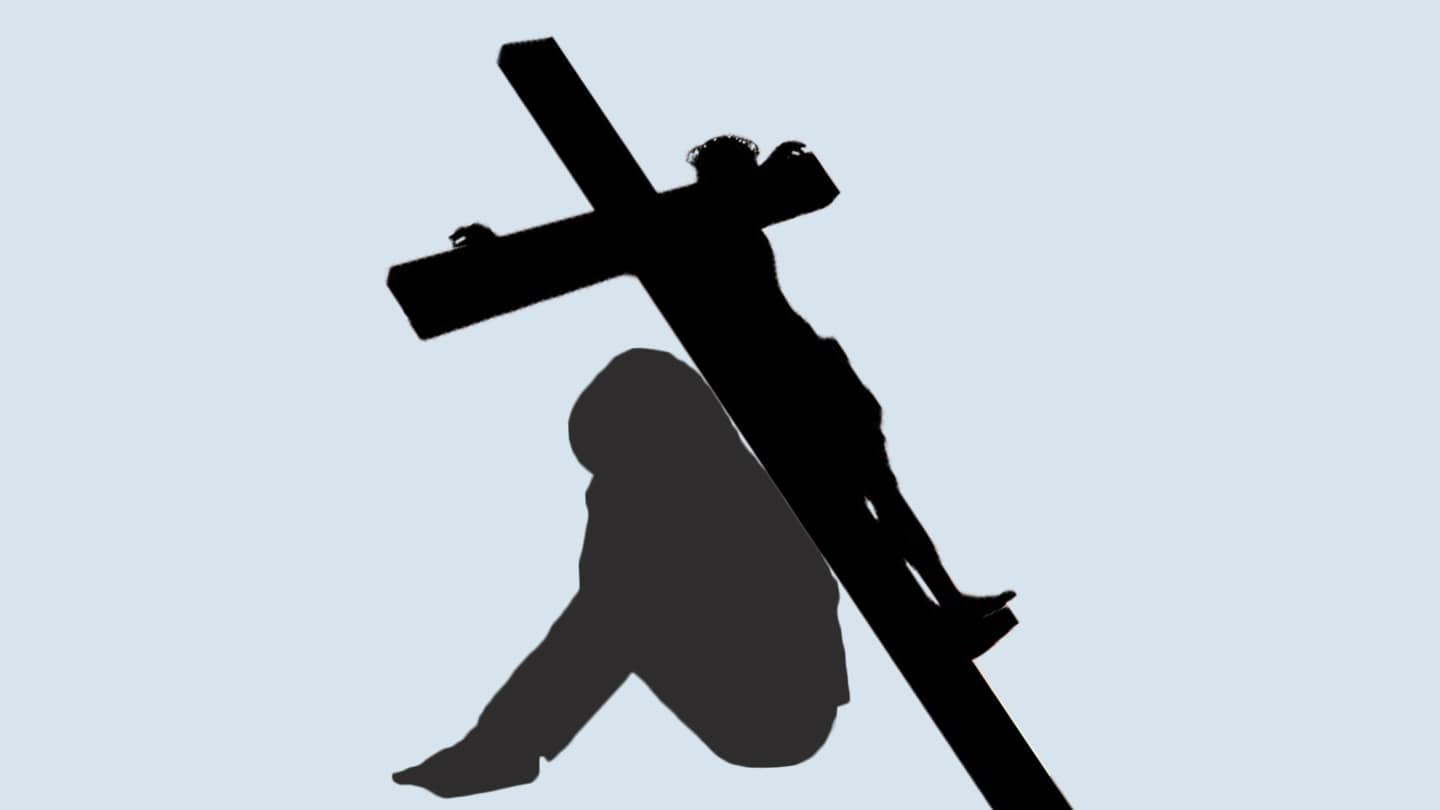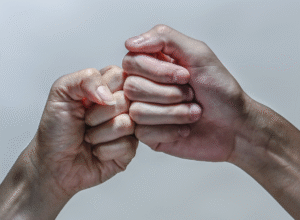W Kościele słyszałem ciągle o miłości. Chrześcijaństwo to religia miłości – powtarzano. Potem pojawiały się zastrzeżenia, że chodzi o miłość dojrzałą, odpowiedzialną i jaką tam jeszcze. Jak z uczciwością kupiecką, która czasami różni się od uczciwości po prostu. W efekcie byłem coraz dalej od tego, co sam odczuwałem jako miłość.
Chyba sam katolicyzm miał z tym problem. Wierni muszą nie raz dusić w sobie odruchy serca, żeby dostosować się do wskazań Kościoła. Na religii w liceum ksiądz Władysław przeciął wątpliwości i podał definicję: miłość to akt woli, nie uczucie. Zaznaczył przy tym, że tych dwóch stanów nie należy ze sobą mylić.
Po co takie ostre rozróżnienie? O ile wiem coś o miłości z doświadczenia, polega ona na tym, że różnica między uczuciem a wolą raczej znika. Do miłości nie trzeba się zmuszać. Jak ktoś nie może obejść się bez powtarzania: „Przecież go kocham!” i zaciska zęby, to moim skromnym zdaniem powinien się dobrze zastanowić, co się z nim dzieje.
Inna rzecz kłótnie i różnice zdań. Nie raz bywa gorąco, ale pod spodem nawet w najgorszym kryzysie jest jednak coś, czego nie da się pominąć ani podzielić na wolę i uczucie. Jedno i drugie podpowiada: naprawimy to, porozumiemy się, wyjaśnimy trudne sprawy. Jeśli zgoda jest w tej konkretnej chwili trudna, spróbujemy jeszcze raz, kiedy tylko każde odzyska równowagę. Jak coś takiego znika, to chyba czas się rozstać.
Bóg Ojciec – relikt dawno minionych czasów
Ale z Jezusem Chrystusem i Bogiem Ojcem rzecz wygląda zupełnie inaczej, podobnie jak z chrześcijanami i ich Bogiem. Nie ma mowy o różnicy zdań, bo Syn ma być posłuszny Ojcu. Teraz rozumiemy, dlaczego tak ważny jest akt woli. Jak miłość zasadza się na posłuszeństwie i trudno ją od posłuszeństwa oddzielić, uczucia mogą sprawiać poważne kłopoty. Trzeba coś z nimi zrobić, sprać po pysku niewolnika w sobie i powiedzieć mu, co ma robić i gdzie jego miejsce. A do tego najlepiej wykorzystać silną wolę.
Tym bardziej, że chrześcijanin występuje przeciw instynktowi samozachowawczemu: „Ojcze, jeśli chcesz, zabierz ode Mnie ten kielich! Jednak nie moja wola, lecz Twoja niech się stanie!” (Łk 22, 42). Chrystus „uniżył samego siebie, stawszy się posłusznym aż do śmierci – i to śmierci krzyżowej” (Flp 2, 8). Wymagania są jak widać wyśrubowane. W posłuszeństwie na wzór Chrystusa trzeba dojść do ściany – samounicestwić się, czyli całkowicie zaprzeczyć sobie.
Na dobrą sprawę jesteśmy w jakiejś kompletnie archaicznej i anachronicznej sytuacji. Dzisiaj mało który ojciec przy zdrowych zmysłach pomyśli, że dzieci mają się go bezwzględnie słuchać. Wiemy, że to nie jest zdrowa sytuacja i nie na tym polega ojcowski autorytet. W końcu wychowuje się dzieci po to, żeby były samodzielne.
Chrześcijański Bóg Ojciec wygląda na skamielinę z czasów, kiedy ojcowie uważali członków rodziny za swoją własność. Już Molier się z tego wyśmiewał jakieś czterysta lat temu, ale katolicy nie przeczytali. Ich Bóg ciągle ma prawo wymagać posłuszeństwa, wymaga go i nie ma na to rady. Kościół nam powie, czego chce od nas najwyższa instancja.
Zostańmy jeszcze przy bożej miłości. Co do posłuszeństwa nie ma dyskusji, ale przecież chrześcijański Bóg udziela wiernym przebaczenia – przebacza oczywiście nieposłuszeństwo.
Co tu jest grane? W Kościele powiedzą, że Bóg przebacza, bo nas kocha takimi jakimi jesteśmy, ze wszystkimi naszymi niedoskonałościami, że wszystko możemy przed nim wyznać. Nie jestem przekonany… Mam wrażenie, że najważniejsze w tej relacji okazuje się raczej co innego. Miłosierdzie jest tylko drugą stroną złości, którą przeżywa Bóg. On jest na nas nieustannie wkurzony. Obraża go wszystko, co wystaje spod szablonu, któremu mamy być posłuszni. Gdyby się nie złościł, nie musiałby przebaczać.
Autorytarni ojcowie rzeczywiście okropnie się denerwują, kiedy ktoś ich nie słucha. Złość ludzka rzecz, można by ją wybaczyć i samemu Bogu, ale jednak przyjrzyjmy się, jak ona wygląda. Jest w niej, było nie było, jakaś przesada.
W Apokalipsie Boży gniew przybiera postać „jeziora ognia i siarki”. Lądują w nim po kolei wszyscy nieposłuszni, żeby „cierpieć katusze we dnie i w nocy na wieki wieków” (Ap. 20, 10). Całkowite i bezwarunkowe odrzucenie. Nasz Bóg przeżywa gniew, który unicestwia tych, na których się obraził. I to bez odwołania! Ten gniew płonie bez końca, więc albo posłuszeństwo, albo „przeklnę cię!”.
Tu pozwolę sobie na małą dygresję. Jak sam się łapię na czymś takim, zapala mi się w głowie czerwona lampka, zwłaszcza jeśli nie mogę się uwolnić od fantazji o unicestwieniu nieposłusznych. Nie dlatego, żebym uważał złość za coś szczególnie złego, raczej dlatego, że uporczywość takiego „wygnam, zabiję, zapomnę na wieki!” wskazuje na coś pod spodem. Na jakąś nierozwiązaną zaszłość – moją… W sytuacjach, kiedy ojcowie mówią do dzieci „nie istniejesz dla mnie, nie chcę cię więcej znać, już nigdy nie będziesz miał do mnie dostępu”, najczęściej z samymi ojcami jest coś nie w porządku.
Niemowlęcy kompleks
Coś nie tak z miłością, która najwyraźniej nie radzi sobie z różnicami. Ci, których kochamy, nie zaspokoją bezwarunkowo wszystkich naszych oczekiwań i jeśli tak wyobrażamy sobie miłość, to długo ona nie potrwa. W dorosłym życiu nie ma cyca na żądanie. Czegoś podobnego może domagać się niemowlak i ma pełne prawo do bezgranicznej wściekłości, jak nie dostaje, ale z tego się wyrasta. Dla takiego brzdąca matka ma być dostępna aż do ostatecznego wyczerpania, bo jak nie to armagedon! Posłuszna aż do śmierci i to śmierci krzyżowej – z niewyspania, bólu pleców, noszenia w nieskończoność i niemożności uwolnienia się od żądań kilkumiesięcznego tyrana. Znacie to? Ci, co mają dzieci, na pewno znają.
Można podejrzewać, że surowi ojcowie zatrzymali się gdzieś po drodze i nie mogą zapomnieć raju matczynej piersi wraz ze słodką, niczym niezmąconą jednością. Chcieliby do tego wrócić, tyle że teraz z własnymi dziećmi. I jak nasze niemowlaki wściekają się, kiedy nie wychodzi – ostatecznie, bez dystansu i na wieki wieków amen.
Trudna sprawa. Wygląda na to, że mamy Boga-Bobasa… Albo jakiś niemowlęcy kompleks dręczący tych, co sobie takiego Boga wyobrażają i którym z nim dobrze. Niemowlak też człowiek, ale na ojca się nie nadaje. Nie da rady…
Rodzice nie mogą pozwalać sobie na bezgraniczną złość, która jest jak najbardziej na miejscu u dziecka. Powinni zaakceptować jako coś najnormalniejszego w świecie wściekłość niemowlaka, który całym sobą buntuje się przeciw temu, że matka jest jednak kimś osobnym i czasami nie ma jej w pokoju. Są do tego przygotowani, silni i dojrzali. Jeśli sami wpadają w podobną wściekłość, kiedy dziecko ich nie słucha, to wyrazy współczucia dla tego dziecka. A chrześcijański Bóg najwyraźniej wpada w taką wściekłość.
Karą za nieposłuszeństwo jest piekło, a najgorsze jest w nim całkowite odrzucenie bez odwołania i na zawsze. Nie chcesz tańczyć, jak ci zagram, to zabieraj swoje zabawki i spadaj z mojej piaskownicy! Ale przecież tak się dzieci nie traktuje. Jeśli już weźmiemy na serio tę ojcowsko–synowską metaforę, to mamy do czynienia z bardzo niedojrzałym ojcem.
Dziecko nie da rady obronić się przed rodzicem, który grozi piekłem. Nie poradzi sobie z groźbą separacji, bo potrzebuje rodziców jak powietrza. To dla niego gorsze niż śmierć. Samo z siebie pragnie się oddzielić i panicznie się tego boi, dlatego nie ma co potęgować lęków i grozić najwyższym wymiarem kary za samodzielność, bo to coś destrukcyjnego i ponad siły. Pewnie żaden ojciec ani żadna matka, którzy coś niecoś czują, nie zafundują dziecku podobnego doświadczenia.
Mogą powiedzieć, dajmy na to: „zakazuję tego czy tamtego i jak będziesz przekraczał zakazy, to nie pójdziemy do kina”, ale to zupełnie coś innego niż: „Bądź posłuszny gówniarzu, bo jak nie, to oddam cię do domu dziecka!”. Piekło to coś w rodzaju „domu dziecka” albo „policjanta”, który zabiera za nieposłuszeństwo.
Taką edukację fundowano mi w Kościele, kiedy miałem sześć albo siedem lat. Pamiętajcie o tym, jeśli przyjdzie Wam do głowy pomysł, żeby posłać dzieci na religię.
Złodziej, ale nasz
A jak ludzie wyobrażają sobie relacje z dziećmi, kiedy na chwilę zapomną o chrześcijaństwie? I czego można się wtedy spodziewać po ojcu albo po prostu po rodzicach? Akceptacji! Może znacie Złodzieja nad złodziejami? Opowiadałem tę bajkę tysiąc razy mojej córce i do tego oglądamy ją co jakiś czas w świetnej filmowej adaptacji niemieckiej telewizji ARD (polecam!). A sam usłyszałem ją pierwszy raz od babci, gadaliśmy zawsze, kiedy babcia prasowała.
Złodziej nad złodziejami przyjeżdża po latach do rodzinnego domu, z którego uciekł, siada z rodzicami do stołu i mówi: jestem złodziejem. Nic przyjemnego dla rodzicielskich uszu. Ale rodzice odpowiadają: złodziej, ale przecież nasz syn. I są z niego mimo wszystko dumni, kiedy pokazuje, że jest mistrzem w swoim fachu, choć to zupełnie nie ich świat.
Piękna historia o tym, że w dojrzewaniu i samodzielności jest jakaś zdrada, coś złodziejskiego. „Ten ma szczęście, co ukradnie, bo niewiele w świecie tego. Czy to ładnie, czy nieładnie, nie pytajcie, nie wiem tego”. Ale tę nieodłączną od dojrzewania różnicę da się przeżyć. To jest najważniejsze i najbardziej wzruszające w tej baśni. Relacje z rodzicami stają się inne, ale nie przestają być bliskie, chociaż dzieci wybierają coś innego niż rodzice.
Z Bogiem katolików czegoś takiego nie doświadczymy. Bóg cię kocha, Bóg ponoć cię akceptuje takim, jakim jesteś, ale jednak pod warunkiem, że będziesz posłuszny. Możesz czasami napsocić, zrobić coś po swojemu, ale zawsze musisz w końcu uznać, że to był błąd. Że Ojciec ma jednak rację i że jego prawa bezwzględnie obowiązują. Czy jesteś do tego przekonany, czy nie, czy czujesz się grzesznikiem, czy nie czujesz – wszystko jedno. Powinieneś żałować za grzechy, czyli w ostatecznym rachunku za nieposłuszeństwo. Jak nie, nie ma przebaczenia.
W Kościele nieposłuszeństwa nazywają upadkami. Najważniejsze – mówią – to zawsze się z takich upadków podnosić, czyli wracać do posłuszeństwa. „Kochać to znaczy powstawać” – śpiewałem na mszy. Podnoszenie się z upadków było bardzo męczące i – wierzcie mi – nie dlatego, że się leniłem i nie chciałem pracować nad sobą. Raczej dlatego, że wpychano mnie w rolę dzieciaka, z którego Bóg jest bez końca niezadowolony.
Ojciec niebieski stwarzał sytuację, która produkowała nieudane dzieci. Trudno być nieudanym dzieckiem i to może męczyć. Ciągle podskakiwać ze świadomością, że i tak się nie doskoczy, bo poprzeczka jest za wysoko i ciągle potrzebować ojcowskiego przebaczenia. Konia z rzędem temu, kto ocali psychiczną równowagę przy takim traktowaniu.
**
Tomasz Żukowski – historyk literatury, profesor w Instytucie Badań Literackich PAN. Autor książek Wielki retusz. Jak zapomnieliśmy, że Polacy zabijali Żydów (2018) i Pod presją. Co mówią o Zagładzie ci, którym odbieramy głos (2021).

 Wspieraj
Wspieraj 

 Wspieraj
Wspieraj  Wydawnictwo
Wydawnictwo 
 Zaloguj się
Zaloguj się 
















